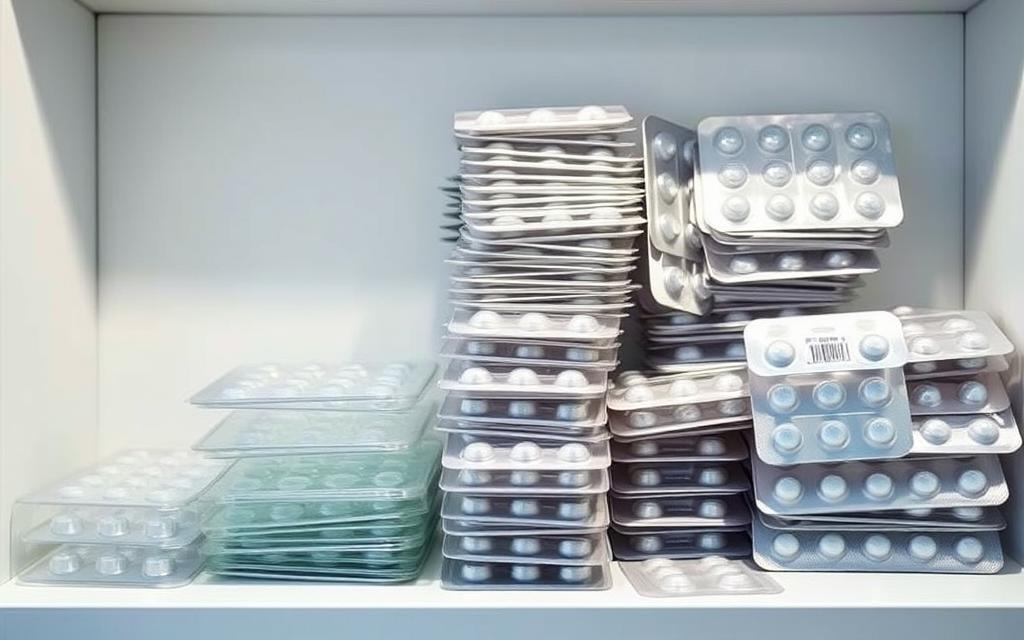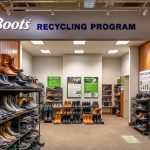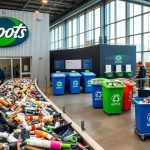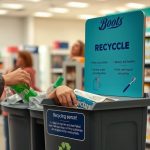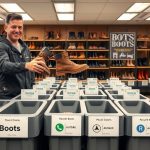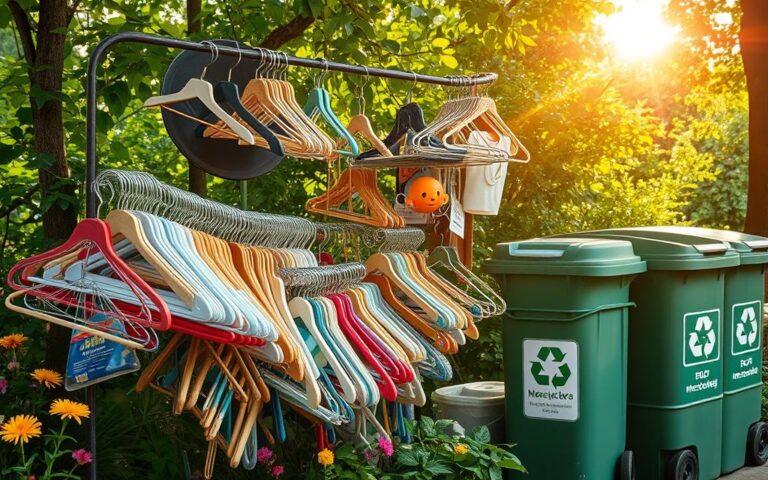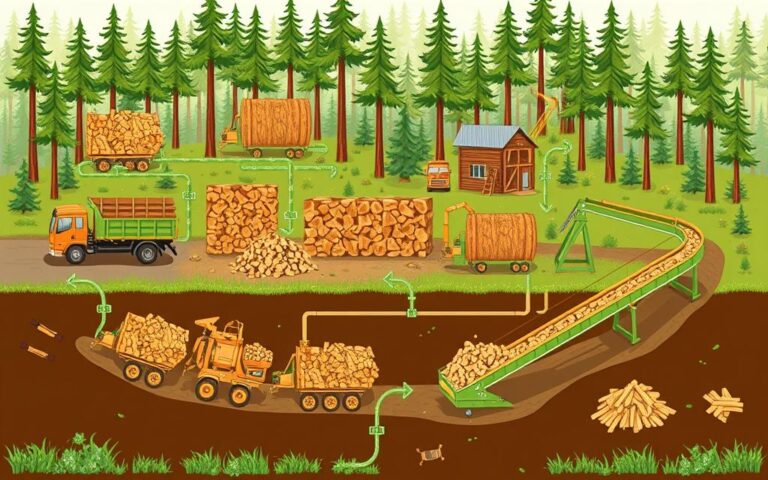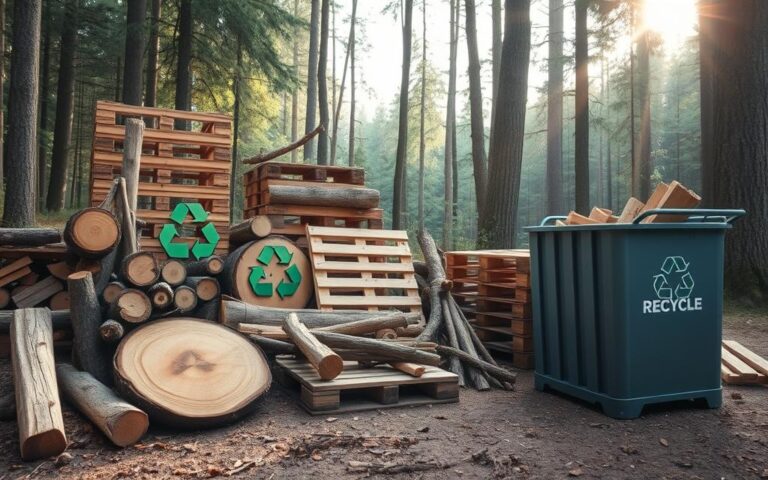Recycling Blister Packs at Boots: A Step-by-Step Guide
Boots has introduced a UK-wide recycling scheme for empty blister packs, allowing customers to participate while earning rewards. This initiative follows a successful pilot in London and the Southeast, where 170,000 participants signed up to recycle hard-to-recycle medication and vitamin packaging.
The program addresses a significant gap in recycling infrastructure, as blister packs are made from a combination of plastic and foil, requiring specialized processing. By participating in this scheme, customers can help reduce landfill waste and potentially earn rewards through the Boots Advantage Card program.
This comprehensive guide will walk you through the process of recycling your empty blister packs at Boots stores across the UK, making it easier to contribute to a more sustainable future.
Boots Recycle Blister Packs: Program Overview
As part of its commitment to environmental sustainability, Boots has launched a nationwide blister pack recycling initiative. This program is an extension of the popular Recycle at Boots initiative, which rewards customers for bringing empty health and beauty products that cannot be recycled at home to collection bins at Boots.
From Pilot to Nationwide Initiative
Initially tested as a pilot program in over 100 stores throughout London and the Southeast of England, the blister pack recycling scheme garnered significant participation from 170,000 customers. Following its overwhelming success, Boots expanded the initiative to more than 800 stores nationwide, making it accessible to millions of customers across the UK.
- The program specifically targets blister packs due to their unique recycling challenges.
- Millions of blister packs end up in landfills annually, taking hundreds of years to break down.
Why Blister Pack Recycling Matters
The blister pack recycling program addresses a significant gap in the UK’s recycling infrastructure. By creating a dedicated recycling stream for these hard-to-recycle items, Boots is reinforcing its commitment to sustainability in the health and beauty sector. The program operates as part of the broader Recycle at Boots initiative, which has already processed over 3.1 million products since its launch in 2020.
The environmental impact of not recycling blister packs is substantial, with potentially harmful substances being released into the soil and water systems. By participating in the recycling scheme, customers can contribute to reducing this environmental impact.
How to Recycle Your Blister Packs at Boots
The process of recycling blister packs at Boots involves a few easy steps that can be completed using the Recycle at Boots app. This program is designed to make it convenient for customers to recycle their empty blister packs, reducing waste and promoting sustainability.
Setting Up Your Scan2Recycle Account
To start recycling, customers need to create a Scan2Recycle account by downloading the Recycle at Boots app and following the registration prompts. It’s essential to link your Boots Advantage Card to your Scan2Recycle account to receive rewards and help Boots track the environmental impact of the program.
Logging and Validating Your Empty Packs
Once registered, customers can log their empty blister packs using the app’s scanning feature. The system requires up to 24 hours to validate the submissions. During this time, the app will show the items as “pending” before changing to “validated” when approved.
Dropping Off at Participating Stores
After validation, customers can locate a participating Boots store using the store locator feature in the app. Upon arriving at the store, they need to scan the QR code on the blister pack deposit box to complete the recycling process.
| Step | Description |
|---|---|
| 1. Create Account | Download Recycle at Boots app and set up Scan2Recycle account |
| 2. Log Empty Packs | Use the app to scan and log empty blister packs |
| 3. Drop Off | Bring validated packs to a participating Boots store and scan QR code |
Rewards and Benefits of Participating
Customers who recycle their blister packs at Boots can reap multiple benefits, including rewards through the Boots Advantage Card program and contributing to environmental sustainability.
Earning Boots Advantage Card Points
By participating in the Boots blister pack recycling program, customers can earn Boots Advantage Card points. For every five empty blister packs recycled and a minimum spend of £5 in-store, customers receive 100 points, worth £1. Additionally, scanning 15 empty blister packs in one deposit and spending £10 in-store rewards customers with 150 Advantage Card points.
| Recycling Action | Points Earned | Minimum Spend |
|---|---|---|
| 5 empty blister packs | 100 points (£1) | £5 |
| 15 empty blister packs | 150 points | £10 |
Environmental Impact: From Waste to Resources
The recycling program not only rewards customers but also significantly contributes to environmental sustainability. The blister packs are sent to MYGroup, where the aluminum foil is recycled conventionally, and the plastic is processed into a material called MYBoard™, used for furniture, playground equipment, and construction materials. This process creates a circular economy by transforming waste into valuable resources.
As noted by industry experts, “Recycling programs like Boots’ are crucial in reducing waste and promoting sustainability in the pharmaceutical industry.”
“The recycling of blister packs is a significant step towards reducing pharmaceutical waste. It’s a great example of how industry and consumers can work together to achieve environmental sustainability.”
The Future of Sustainable Packaging at Boots
The future of sustainable packaging at Boots is bright, with the company making significant strides in recycling blister packs. Initially launched in over 100 stores in London and South East England, the program is set to expand to more stores across the UK in the next year, aiming to divert millions of blister packs from landfills.
Boots’ commitment to sustainability extends beyond the recycling scheme, with initiatives like “Be More Edit” helping customers make more sustainable choices by categorizing products into plastic-free, recycled, and reusable options. The company is also reducing plastic in its products, such as banning plastic-based wet wipes from sale in 2022, as reported in Packaging Europe.
The blister pack recycling scheme is part of Boots’ broader sustainability strategy, which includes working with suppliers to develop more easily recyclable packaging materials. By transforming used blister packs into functional items like playground equipment and furniture, Boots is demonstrating the viability of circular economy principles in the pharmaceutical sector.
As consumer awareness about packaging waste grows, Boots is positioning itself at the forefront of retail sustainability. The company’s holistic approach to sustainability signals a comprehensive commitment to environmental responsibility, making it a leader in the health and beauty industry.
FAQ
What types of packaging are accepted in the recycling program?
The program accepts empty blister packs containing plastic and foil, typically used for packaging medicines, vitamins, and other health products.
How do I log my empty blister packs for recycling?
To log your empty blister packaging, you need to set up a Scan2Recycle account, scan the barcode on the packaging, and validate your submission.
Can I drop off my empty blister packs at any store?
No, you can only drop off your empty plastic and foil packaging at participating stores that have a designated collection point, currently available in over 800 stores.
What are the benefits of participating in the recycling program?
By participating, you not only contribute to reducing waste but also earn Boots Advantage Card points for every valid submission, redeemable for discounts and rewards.
How does the recycling program impact the environment?
The program helps to recover valuable materials from plastic and foil packaging, reducing the amount of waste sent to landfills and conserving resources for future use.
Is the recycling program available nationwide?
Initially launched as a pilot scheme, the program has expanded to become a nationwide initiative, with participating stores across the country.

